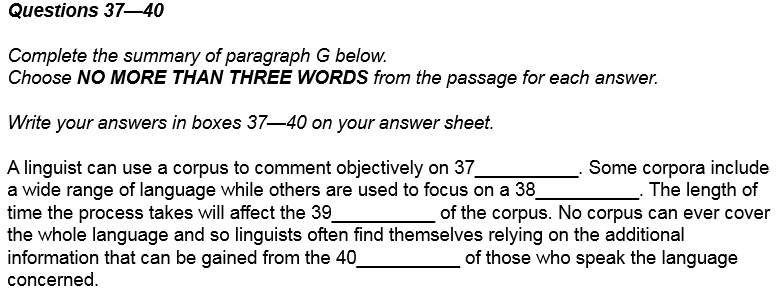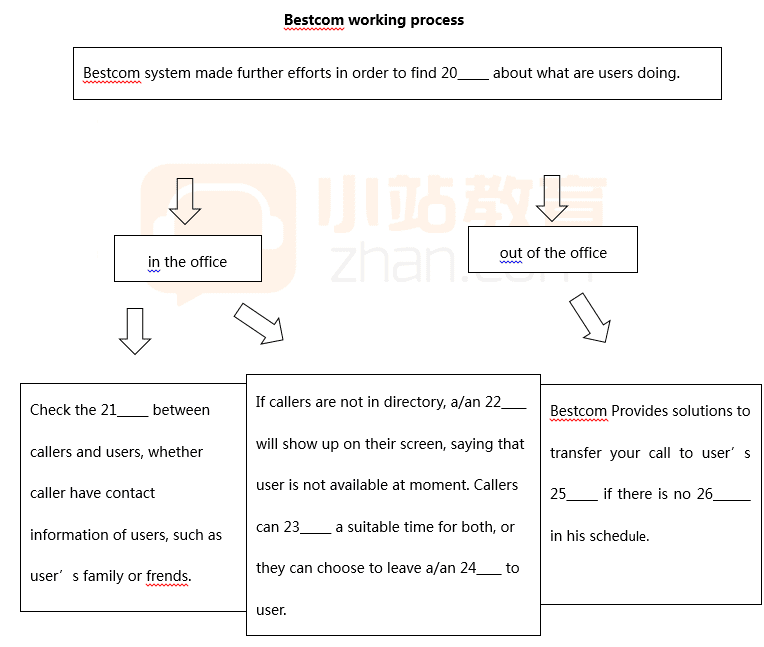优质的原版杂志对于提高GRE阅读分数真的很有用,我们来看看吧,下面小编就和大家分享,来欣赏一下吧。
优质的原版杂志对于提高GRE阅读分数真的很有用
外文章。
复习GRE不止要看各类考试资料教课书籍,也需要阅读一些课外读物帮助提升实力,原版杂志无论从文章难度还是涉及内容上来说,都跟GRE考试,特别是GRE阅读有较大的相似度,可以说是最适合GRE复习的课外读物之一。不过,看原版杂志练GRE阅读提分也需要讲究方法,只是走马观花一看而过并不是正确的方法。下面本文就为大家具体讲解看原版杂志提升GRE阅读分数的心得技巧。新GRE机考加试规则大揭秘
一、看原版杂志对复习GRE有哪些好处?
那么看原版杂志对于备考复习GRE来说到底有哪些实际价值和好处呢?
1. GRE词汇&填空
首先从词汇上来说,GRE考试对于词汇的考察不仅体现在量上,对质也有很高的要求。考生不仅要背出单词的含义,还要学会辨析和使用词汇。而原版杂志中的文章由于难度和内容上与GRE考试相近,在词汇使用方面常会大量运用各类GRE词汇,对于很多词汇也常常会用各类近义词进行替换让文章更显出色。因此通过看杂志来学习巩固复习GRE词汇的含义和辨析用法,可以说原版杂志是相当好的选择。
2. GRE阅读
看原版杂志最能够提升的应该就是GRE阅读了。事实上,许多GRE阅读文章本身就是选自杂志中的文章并加以适当改动而来,因此从文章风格上来说,看原版杂志就等于是变相在看GRE阅读文章。而无论是文章涉及的各类背景知识,还是其中对于长难句的运用,考生都可以在GRE阅读中找到相似之处。常看原版杂志的考生,面对GRE阅读时,往往会觉得十分亲切,考试压力也会更小。GRE逻辑阅读烧脑难题怎么做?
3. GRE写作
原版杂志的文章文笔相当优秀,各类遣词造句的使用可谓经典,而文章中对观点理论的阐述和论证,也有很高的借鉴价值,而这些恰恰都是GRE写作所需要的。因此,多看杂志,考生的写作能力必然会在无形中逐渐提升。而把这些技巧心得运用到GRE写作中,想要拿到作文高分自然也就不在话下了。
二、怎样正确阅读和使用原版杂志?
虽然看原版杂志好处不少,但考生也需要讲究正确的阅读和使用方法。充分用好杂志内容需要注意以下几点:
1. 培养端正的阅读态度
大家在看文章的时候总是会想当然下意识地根据自己喜好进行挑选。一些不感兴趣的话题往往会直接跳过。但在GRE考试中无论文章题材如何考生都必须认真去看,因此常会让一些人觉得很痛苦。所以,为了端正阅读态度,做到对所有题材内容都一视同仁,大家在看杂志的过程中也要注意避免挑食,哪怕是完全不熟悉不了解的话题,也需要认真投入地阅读,逐步培养对于所有文章一视同仁的阅读态度。这种态度对于GRE考试是十分重要的。
2. 看文章学会找重点
GRE考试中最让人头疼的就是长篇阅读,文章内容那么长,光是读完就要花不少时间,可以说是许多考生考试时间来不及的罪魁祸首。阅读长篇文章需要学会抓重点、跳读略读等技巧,要做到读完后脑海中对文章主旨和结构框架有所印象。而这些技巧和能力的培养,完全可以通过阅读原版杂志的文章来进行锻炼。大家还可以结合笔记进行整理,提高对长篇阅读的适应力。
3. 训练猜词技巧
在阅读过程中遭遇生词在所难免,哪怕是背熟了GRE词汇也偶尔会碰到冷僻词汇。看原版杂志也常会遇到这种情况。因此,考生完全可以通过阅读杂志来锻炼自己的猜词能力以及在生词干扰下理解文章大意的能力,应对考场上GRE阅读中生僻词。
4. 学习遣词造句
如上文所说,原版杂志中的文章质量很高,特别是在遣词造句方面都可以达到GRE高分满分范文的水平。因此,大家在阅读过程中,也可以适当摘抄记录一些好词妙句,适当背诵后灵活运用到自己的写作之中,让文章增光添彩。
三、提升GRE阅读能看什么原版杂志?
有许多质量优秀适于作为GRE备考课外读物的原版杂志刊物,比如《时代周刊》、《新闻周刊》等等。大家如果有比较方便能够接触到这些内容的渠道,完全可以把它们纳入自己的课外读物书单之中,结合备考复习计划进行阅读。另外,小站每天都会为考生推荐一篇精选双语阅读,确实想要提高阅读能力的同学真的应该每天都看一篇呢。
以上就是本文关于原版杂志和GRE阅读备考提分的一些介绍,希望大家也能够根据自身的备考计划,安排好课外杂志的阅读环节,为考试积累更多底蕴,在GRE考试中发挥出色,分数更上一层楼。
GRE考试阅读真题及答案
Passage 4
Writing about nineteenth-century women’s travel writing, Lila Harper notes that the four women she discussed used their own names, in contrast with the nineteenth-century female novelists who either published anonymously or used male pseudonyms. The novelists doubtless realized that they were breaking boundaries, whereas three of the four daring, solitary travelers espoused traditional values, eschewing radicalism and women’s movements. Whereas the female novelists criticized their society, the female travelers seemed content to leave society as it was while accomplishing their own liberation. In other words, they lived acontradiction. For the subjects of Harper’s study, solitude in both the private and public spheres prevailed—a solitude that conferred authority, hitherto a male prerogative, but that also precluded any collective action or female solidarity.
1. Which of the following best characterizes the “contradiction” that the author refers to?
A. The subjects of Harper’s study enjoyed solitude, and yet as travelers they were often among people.
B. Nineteenth-century travel writers used their own names, but nineteenth-century novelists used pseudonyms.
C. Women’s movements in the nineteenth-century were not very radical in comparison with those of the twentieth-century.
D. Nineteenth-century female novelists thought they were breaking boundaries, but it was the nineteenth-century women who traveled alone who were really doing so.
E. While traveling alone in the nineteenth-century was considered a radical act for a woman, the nineteenth-century solitary female travelers generally held conventional views.
Consider each of the choices separately and select all that apply.
2. According to the passage, solitude had which of the following effects for the nineteenth century female travelers?
A. It conferred an authority typically enjoyed only by men.
B. It prevented formation of alliances with other women.
C. It relieved peer pressure to conform to traditional values.
答案:A B E
GRE考试阅读真题及答案
Although vastly popular during its time, much nineteenth-century women’s fiction in the United States went unread by the twentieth-century educated elite, who were taught to ignore it as didactic. However, American literature has a tradition of didacticism going back to its Puritan roots, shifting over time from sermons and poetic transcripts into novels, which proved to be perfect vehicles for conveying social values. In the nineteenth century, critics reviled Poe for neglecting to conclude his stories with pithy moral tags, while Longfellow was canonized for his didactic verse. Although rhetorical changes favoring the anti-didactic can be detected as nineteenth-century American transformed itself into a secular society, it was twentieth-century criticism, which placed aesthetic value above everything else, that had no place in its doctrine for the didacticism of others.
1. Which of the following best describes the function of the highlighted sentence?
A. It explains why the fiction mentioned in the first sentence was not popular in the twentieth century.
B. It assists in drawing a contrast between nineteenth-century and twentieth-century critics.
C. It provides an example of how twentieth – century readers were taught to ignore certain literature.
D. It questions the usefulness of a particular distinction between Poe and Longfellow made by critics.
E. It explains why Poe’s stories were more popular than Longfellow’s verse during the nineteenth century.
2. In the context in which it appears, “conveying” most nearly means
A. carrying
B. transferring
C. granting
D. imparting
E. projecting
答案:D B
GRE考试阅读真题及答案
During the Pleistocene epoch, several species of elephants isolated on islands underwent rapid dwarfing. This phenomenon was not necessarily confined to the Pleistocene, but may have occurred much earlier in the Southeastern Asian islands, although evidence is fragmentary. Several explanations are possible for this dwarfing. For example, islands often have not been colonized by large predators or are too small to hold viable predator populations. Once free from predation pressure, large body size is of little advantage to herbivores. Additionally, island habitats have limited food resources, a smaller body size and a need for fewer resources would thus be favored. Interestingly, the island rule is reversed for small mammals such as rodents, for which gigantism is favored under insular conditions.
1. The primary purpose of the passage is to
A. question the plausibility of one explanation sometimes offered for the dwarfing of certain species living on islands
B. argue that dwarfing of certain species living on islands occurred prior to the Pleistocene
C. cite evidence suggesting that dwarfing may have adverse consequences for some species living on islands
D. present some possible explanations for the dwarfing of certain species living on islands
E. contrast the effects of insular conditions on species with large body size and species with small body
2. According to the passage, which of the following statements about body size in mammals is true?
A. A large body is unfavorable to mammalian species’ survival under most conditions.
B. A large body tends to benefit small mammals living on islands.
C. For most herbivorous mammals, a large body size is easier to sustain in the absence of large predators.
D. Under most conditions, a small body is less beneficial to herbivorous mammals than to nonherbivorous mammals.
E. Among nonherbivorous mammals, a small body is more beneficial on an island than on a mainland.
答案:
DB









 扫一扫支付
扫一扫支付


